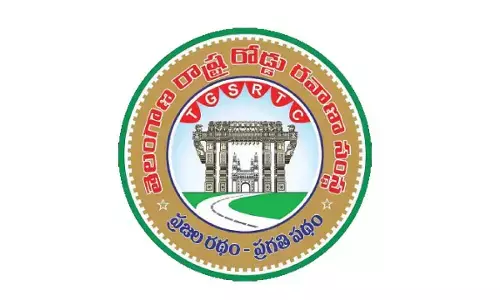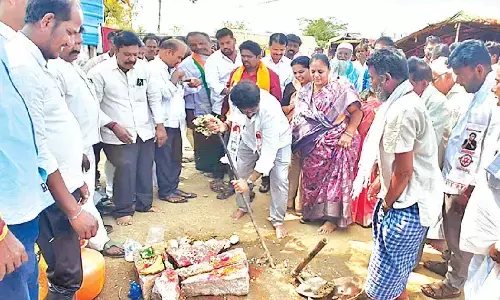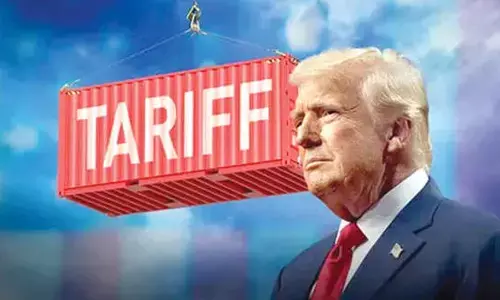NEP: A visionary document towards making Atmanirbhar Bharat

NEP: A visionary document towards making Atmanirbhar Bharat
On February 2, 1835, while discussing the English Education Act, Lord William Bentinck, the then Governor-General of the British East India Company gave his concurrence to the inter-vention of Lord Thomas Babington Macaulay
On February 2, 1835, while discussing the English Education Act, Lord William Bentinck, the then Governor-General of the British East India Company gave his concurrence to the inter-vention of Lord Thomas Babington Macaulay. As a part of the intervention, Lord Macaulay had stated, "All parties seem to be agreed on one point, that the dialects commonly spoken among the natives of this part of India contain neither literary nor scientific information, and are moreover so poor and rude that, until they are enriched from some other quarter, it will not be easy to translate any valuable work into them". This intervention, popularly known as Macaulay's "Minute Upon Indian Education", is widely believed to be the precur-sor to the creation of the Indian Civil Services and the introduction of English education in India. Today, this intervention is also looked upon as racist and imperialist that aimed at jus-tifying British colonial rule.
The Government's National Education Policy, 2020 (NEP-2020) seems to have finally buried the ghosts of Macaulay. The NEP is a step in the right direction of seeking a fine balance between the needs of a highly integrated global world and the need to respect the diversity and local context in all curriculum, pedagogy and policy. In this context, the policy aims to ensure that the medium of instruction till Grade 5, and preferably till Grade 8 and beyond, will be in the home language, mother tongue or local tongue. The dissonance emanating from the imposition of other mediums of language that are alien to the child has finally ended. This policy is not based out of some parochial ideas of insulating children but is driv-en from established research which now suggests that older children have more tools and a better propensity to pick up non-native languages such as English.
It would however be unfair to discuss just the language policy when there is a lot more to the NEP than just this one aspect. The government now understands the critical nature of early childhood education. Learning outcomes in later years are dependent on the environ-ment and care that a child is given between the age of three and six. Hence the establish-ment of seamless linkages between Anganwadis that are promoted by the Ministry of Women and Child Development and the schools of the Ministry of Human Resources and Development (to be renamed as Ministry of Education) is a very big step towards holistic child development. This transition from a 10+2 system of education to a 5 (Foundation) +3 (Preparatory) +3 (Middle) + 4(Secondary) stage would play a huge role in achieving this goal. Further, the reduction in curriculum to contain core essentials, and the promotion of critical thinking and experiential learning is a huge positive of NEP-2020. The emphasis on digital literacy seems to have come from an empathy towards the poor who have been on the wrong side of the digital divide – a phenomenon that has excluded a large number of the poor from accessing critical services and information. NEP-2020 also recognises the contribution of teachers to learning outcomes and has hence taken a pragmatic approach to teacher training. This will be done by on-boarding teachers and specialists from other disci-plines through a framework of 1-year and 2-year B Ed courses while the 4-year integrated B Ed will continue for those without an existing bachelor's degree. Additionally, the National Mission for Mentoring through a large pool of outstanding senior and retired faculty will contribute to bridging both the capacity and the skills gap.
The NEP's transformative agenda does not stop at school education and percolates to higher education. The goal of increasing Gross Enrolment Ratio (GER) from the current 26.3% to 50% by 2035 is aspirational yet achievable. The idea of having an overarching Higher Educa-tion Commission of India (HECI) that oversees the bodies for accreditation (NAC), regulation (NHERC), grants (HEGC) and standards (GEC) will ensure cohesion in policy and implemen-tation.
The imprint of the Prime Minister's vision and thoughts also come clear in the NEP. The roadmap for achieving the objectives of the NEP and for it to be fully operational will take place in 2040. This makes the NEP practicable and pragmatic and gives it a realistic chance of being implemented well. Intermediate timelines for various interventions will allow min-imal disruption and provide the system the requisite resilience. While the curriculum frameworks for students and teachers are the initial goal, attaining universal foundational literacy and numeracy in all primary schools for all learners by grade 3 is set as a target for 2025-2026.
India has largely been a knowledge consumer rather than a knowledge producer. The jobs that we have created have largely been on account of the democratisation of knowledge, the fungibility that the internet provides and our ability to excel at applying and scaling knowledge systems. The best example of this are the software and the pharmaceutical sec-tors where India has capitalised on the knowledge produced by other innovators. The deci-sion to create the National Research Foundation as an apex body for fostering a strong re-search culture is an important step in making India a net knowledge producer.
The NEP paves way for Atmanirbhar Bharat with its accentuated focus on robust school edu-cation system, flexible higher education system and thrust on quality and research. The NEP is Prime Minister Narendra Modi's mantra for transforming 21 century India from being a knowledge consumer to a knowledge producer.
(The writer teaches in Osmania University and is Executive Council Member of National As-sessment and Accreditation Council. Views expressed are personal)










